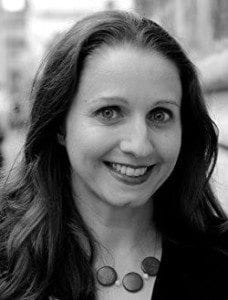Many of the authors with whom I come into contact with have unanimously said that the biggest frustration with getting online fans for the launch of their upcoming book is knowing how to identify those fans first and engage them.
As one who has built my author platform from scratch for the launch of my groundbreaking memoir Accidental Soldier: A Memoir of Service and Sacrifice in the Israel Defense Forces, I’ve made my own share of mistakes building my brand Giving Voice to Your Courage. A tough crowdfunding experience would validate just how important it was to believe in my book’s message despite the stinging rejections. That test would empower me with the long haul of building a platform. You need courage to authentically put your book out there. There is no other shortcut.
To further understand the courage piece that goes into building an author platform, I’ve invited 10 experts from different industries to share some of the mistakes they’ve seen their author clients go through.
It’s very hard to ignore the numbers when we talk about building an author platform which is the number of people you can get on board as you promote your book. Having a strong author platform can mean the difference between your book collecting dust on your shelf and your book flying off of the shelves.
Whether you are self-publishing, going hybrid or the traditional route, it takes more than a great book to convince a literary agent or publisher to sign you on. Gone are the days when agents and publishers would simply sign on authors on the merit of their writing
Many of these agents and publishers are looking for evidence to evaluate whether you have a strong enough reach with your target audience to sell books, and you understand the marketing part of selling. They’re looking to see if you have a social media presence, a website, followers and fans. They’re looking to see how you are able to sell yourself. And that’s where many authors run into trouble: they equate selling themselves with self-promotion because they don’t feel comfortable selling their book online, they inevitably end up making mistakes.
So how can you avoid some of these mistakes? Let’s take a look beginning with Dan Blank whose work I adore and follow with passion:
 Dan Blank, creator of We Grow Media helps writers share their stories and connect with readers and has this to say:
Dan Blank, creator of We Grow Media helps writers share their stories and connect with readers and has this to say:
Forget “best practices” that everyone is doing poorly. Double down on what you care about most. Don’t try to scale by reaching the broadest possible audience — instead invest in reaching potential readers one by one. Care about them first, and over time, that caring will return 100-fold.
 Wendy Keller, literary agent and author of “The Ultimate Guide to Platform Building” teaches us the “5 Author Platform Building Mistakes to Avoid.”
Wendy Keller, literary agent and author of “The Ultimate Guide to Platform Building” teaches us the “5 Author Platform Building Mistakes to Avoid.”
Every author needs a growing platform. A platform is the critical piece that will attract a publisher and later, book buyers. It is also the only way to sell books, whether you get published by Penguin Random House, Hay House or you decide to self-publish.
Here are 5 Platform Building Mistakes to Avoid:
- Thinking you’re special. Your mom was certainly right – you are. But the thousands of people looking for a book just like yours, well, they might need to get to know, trust and like you a bit. A platform is how you begin to build a relationship. This will attract people who like you and decide buy your book (and anything else you’d like to sell them!)
- Waiting for the fairies. At least once a week, some author tries to convince me or my team that they are the lone exception to the Great Publishing Rule: All authors must have a platform. These misguided souls often say that their book is so pure, so spiritual, that it will sell without the author lifting a finger. Often, this upcoming magic is credited to God, Jesus, the fairies, a psychic’s prediction, a Tarot reading… So far, in almost 30 years in publishing, that hasn’t happened yet. Even the one time I actually fell for it back in the 90s!
- Believing a real “Artiste” doesn’t need to promote. If you don’t want to promote, don’t expect book sales. If you refuse to leverage social media and/or media appearances and/or podcasting and/or blogging and/or giving speeches…or any of the other incredibly efficient platform building tools at your disposal at this time in history, your book will get lost in the shuffle. Over 500,000 new books are published each year. No book buyer will sift through so much content noise to find your whisper. If Charlotte Bronte were alive today, she’d be building her platform daily.
- Attempting Platform Building in ways that aren’t congruent with your natural talent. The sin that comes right after “not building a platform” is “building a poorly done, half-baked platform.” That will push people away – right away. (To discover what your natural gifts are for platform building, take the free assessment at KellerMedia.com/BizQuiz). Put all your energy into what you’re good at! We have one New York Times best-selling client who built his entire platform exclusively on Facebook.
- It’s hard to get people to trust you if you only blog, post, Tweet, show up on media, podcast, whatever when you feel like it. In fact, this will un-platform you! If you choose a platform based on your talents and time, and start down this road, give it your best effort. Provide consistent quality and deliver it from a place of true service to your fans.
 My writing coach and publisher Brooke Warner of the award winning She Writes Press and Greenlight Your Book shares this much needed point about platform building that authors often forget:
My writing coach and publisher Brooke Warner of the award winning She Writes Press and Greenlight Your Book shares this much needed point about platform building that authors often forget:
While building your platform, remember that it’s an exercise in generosity. You need to give more than you ask. I see too many new authors selling and self-promoting more than they’re giving. The best way to build a platform is to give free content and engage your readers and fanbase in conversation. Self-promotion and asks should account for no more than 20-30% of what you put out there.
 Deborah Siegal, author, speaker and coach and one of the co-founders of SheWrites.com has this handy “not to do” checklist:
Deborah Siegal, author, speaker and coach and one of the co-founders of SheWrites.com has this handy “not to do” checklist:
- Be confident in being credible. Don’t overstate or overshoot your expertise when building your platform. Aim high, but go for accuracy!
- Build organically. Don’t try to be everywhere all at once.
- Know that quality can trump quantity. People get fixated on the numbers.
- Be selectively responsive. Many think they need to respond to trolls.
- Create a “brand” that jives with who you are. I sometimes see people trying to be a square peg in a round hole. Embrace your square.
- See your issue everywhere. Don’t think of your topic as a one-shot pop.
- Generate authentic community around your work. Don’t be an island.
- Be generous. Don’t stay focused on your platform. Don’t forget to comment, engage, share the work of others.
- Do the thing you think you cannot do. Don’t play it safe.
- Fail well. Don’t be afraid of silence. Silence happens. Get up and try something different, instead!
 Jennie Nash is a book coach who encourages writers and authors to start early enough building their platforms.
Jennie Nash is a book coach who encourages writers and authors to start early enough building their platforms.
The biggest mistake I see writers make when it comes to platform building is not starting soon enough.
They give a million excellent reasons for this – it’s hard enough to write a book, there are only so many hours in the day, it’s impossible to keep up with all the changes in technology, I just don’t get social media – but the end result is always the same: they don’t pay any attention to their future readers and when it comes time to sell the book, either to agents, publishers or directly to readers, they find themselves with a glaring weakness that may well end up undermining their goals.
The fact of the matter is that connecting with readers is your primary job as a writer. No one writes a book because they want it to sit in a drawer, unread. We write to connect. It’s our whole purpose for doing what we do. If we think about who we want to connect to and why we want to connect with them from the moment we conceive of the book, we will be in a far stronger position when it comes time to invite people to read it.
This is not to say that you need to write to the marketplace or pander to an audience or change your vision in order to sell it. It means you need to know your audience, know your point, know your purpose and work to execute it on the page in a way that will lead to deeper connection.
Whether you like it or not, and whether you do it or not platform building starts the moment the idea for a book sparks in your head.
 Joanna Penn, New York Times and USA Today bestselling author who also runs The Creative Penn has these words of wisdom to share. I love her honesty in sharing her branding mistakes. (And yes, authors have to work at building brands!)
Joanna Penn, New York Times and USA Today bestselling author who also runs The Creative Penn has these words of wisdom to share. I love her honesty in sharing her branding mistakes. (And yes, authors have to work at building brands!)
Think long term when building your platform. What do you want to be known as in 5 years time? What words and images do you want associated with your brand. Then build towards that.
One of the mistakes I made early on was starting a blog around my first book, because I soon outgrew that brand. Think bigger, even if you’re just starting out, because you might just get there.
 Penny Sansevieri, of Author Marketing Expert, who I have been following for a while now, has these words of wisdom to share:
Penny Sansevieri, of Author Marketing Expert, who I have been following for a while now, has these words of wisdom to share:
When I was first in business, there were only 500 books published every day; now there are 4,500+. I lead with this, not to be negative, but to remind everyone that a book marketing plan must include more than hope. It needs a solid infrastructure to be successful. Just because your book is on Amazon does not mean that sales automatically roll in without any effort.
The below checklist includes infrastructure strategies you’ll want to consider to make sure you’re setting your book up for success.
- Website: Your website is your 24/7 virtual business card and should present you and your book(s) in the best possible light.
- Newsletter: Newsletters are reliable ways to stay in touch with your followers, so start building your email list early even if you don’t use it right away.
- Social networks: Stay engaged with your readers by finding the networks where your market is most active and adding the social icons to your website. My book Red Hot Internet Publicity includes some great social media strategies.
- Is everything linked? Make sure you don’t have broken links, that your social icons link correctly, and that your “Contact us” works. It must be easy for people to find you!
- Branding: This means that you need to create a uniform “look” that’s consistent across all of your platforms. It should stand alone from your personal social media and reflect your professional brand.
Once you’ve got a rock-solid infrastructure in place, you can start to build on it with a variety of marketing strategies, which will all connect back to these components!
 Shannon M Hernandez is founder of The Writing Whisperer and her expertise lies in content branding for thought leaders. She shares these platform building mistakes:
Shannon M Hernandez is founder of The Writing Whisperer and her expertise lies in content branding for thought leaders. She shares these platform building mistakes:
For authors to be successful with building their platforms—first and foremost the content they are creating must be in total alignment with their personality type. Far too often I see authors forcing themselves to create video, or design images, when these forms just don’t match align with who they are. I call this content misalignment, and I’ve created a tool that helps people determine their top two content personality types.
When authors are easily creating custom content that brings them joy, magic happens. They attract their ideal readers. They don’t get burned out. And most importantly, their content is authentic and keeps current and future readers coming back time and time again.
Authors must also remain consistent. I tell my clients that content marketing and platform building are both long-term strategies. An editorial calendar will help keep the content organized as to what is being published and when. Authors should aim to put out a minimum of one piece of content per week when platform building—which means always!
 Nina Amir, a ten-time Amazon bestselling author of 20 titles, including Creative Visualization for Writers, How to Blog a Book and The Author Training Manual, and an award-winning blogger. Additionally, she is one of 300 elite high-performance coaches in the world and an author coach and trainer has this to share about author platform building mistakes to avoid:
Nina Amir, a ten-time Amazon bestselling author of 20 titles, including Creative Visualization for Writers, How to Blog a Book and The Author Training Manual, and an award-winning blogger. Additionally, she is one of 300 elite high-performance coaches in the world and an author coach and trainer has this to share about author platform building mistakes to avoid:
The first mistake to avoid is developing an I-don’t-want-to-build-platform attitude or an I-don’t-need-to-build-platform attitude. Without platform any book—self-published or traditionally published, fiction or nonfiction—won’t sell as well as it might. After all, author platform equates to a built-in readership for a book. It consists of people in your target market eagerly awaiting the release of your book. So embrace author platform building. Learn to love it because it’s an activity that leads to successful authorship.
The second mistake is inconsistency. Aspiring and published authors start with good intentions. I’ll post to Facebook three times per day and to Twitter five times per day as well as to LinkedIn and Google Plus twice per day. This is unrealistic, especially if you haven’t been using social networks. It’s better to develop a social media posting and engagement schedule that you know you can manage in 15 minutes or so per day.
The third mistake is not sharing valuable content—your own and that of others thought leaders in your niche. If you aren’t blogging (another mistake) and publishing posts consistently, you can’t showcase your expertise to your target audience. Plus, without blog posts of your own, you have no content of your own to share to social media sites. That leaves you with one option: Search out and curate the content of other experts. Regardless, you want to curate content, but this activity should go hand in hand with sharing your own work.
Finally, many writers don’t bother to share the work of others and mistakenly see them as “competition.” Instead, see them as colleagues or partners, since they might be perfect people to help promote your book on their platform.
 Finally, Hope Clark, author of The Edisto Mystery series and the well-known Funds for Writers has this to say about platform building mistakes to avoid:
Finally, Hope Clark, author of The Edisto Mystery series and the well-known Funds for Writers has this to say about platform building mistakes to avoid:
Slow and steady diligence has been my mantra in building my platform over the years, but these days writers are eager to build it quicker. And if you thrust your all into platform building, day after day, you can earn a following. But there are rocks on that path, and some of the stumbles that result can set you back big time.
For instance, criticizing someone these days can result in a permanent record on social media, blogs, and forums. Unless your brand is like JA Konrath where your mission is to stir up controversy, avoid it at all costs. Otherwise you are remembered for your negativism, criticisms, and not your writing. Love me, love my writing is your goal, not Remember me who hates XYZ.
Do not ignore your readers. If they write you, answer, whether in email, snail mail, or on social media. Unless you’re Nora Roberts or Stephen King, who need a full-time person to answer fan mail, you owe it to your readers to reply…and reply with genuine interest. As writers, we fuss about agents and publishers ignoring our queries. Well, you fall into the same league if you ignore your readers. They donated hours to read your work and took time to connect with you. By all means connect back with respect.
Personal appearances still matter, even with the internet. However, be selective. Just because there is an author event does not mean you have to appear. Just because there is a conference does not mean you try to present at it. Research the event to deem whether it’s suitable for you. A poorly developed conference can hurt your image. An author event full of poorly published books can label you. There’s nothing wrong with understanding who is putting on the event, what are the details of the setting, how many authors will be there, who they are, and what is the expected attendance. You are an entrepreneur now with hopes of being seen as a polished professional. There are reasons the highly successful authors have a press agent who vets where they appear. Image matters.
So there you go.. 10 industry experts who know a thing or two about building a platform.
I hope this information gave you some insights on how to strategize with building your platform:
Happy Platform Building!




Connect with Dorit